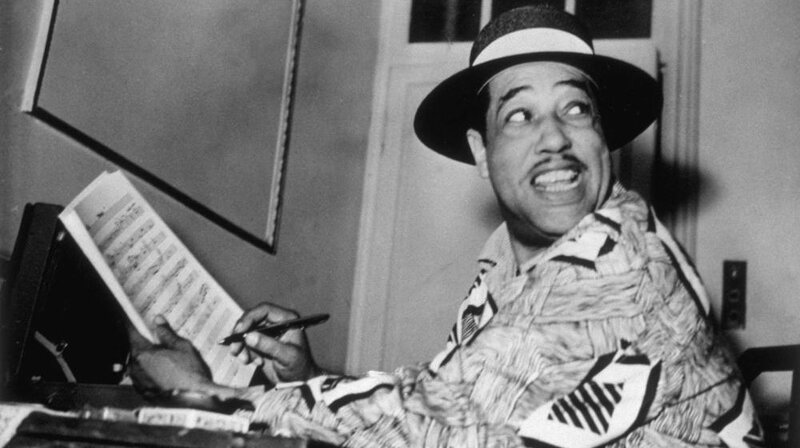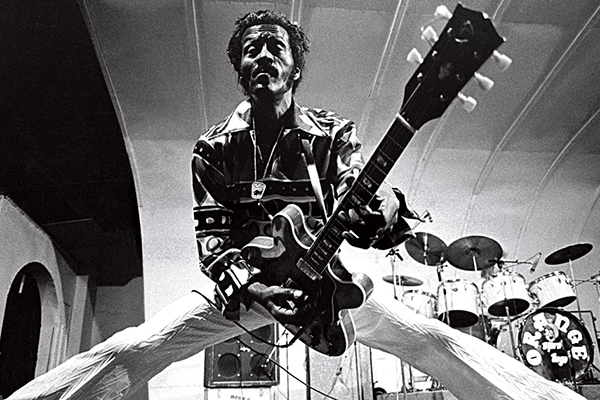Nia Jackson
20 August 2018
Below I have comprised a list of five songs from the year 1928 to 1950 that I like because of their uniqueness, musicality, and influence over music produced in the current day.
- “Dark Was the Night”- Blind Willie Johnson – 1928
Often times when people cannot find words to express their feelings they just hum or say “ooo.” This fact has held true for centuries in the African American community in genres from Gospel to Negro Spirituals. “Dark Was the Night” exemplifies this perfectly. Johnson never says a word throughout the song; there are no lyrics, but you can still feel his sorrow and pain while he hums. I think this is an important song for its time because the majority of the African American community was fighting, constantly, against racial oppression. This song is powerful because it expresses the plight for freedom, justice, and peace through a simple hum. I imagine that “Dark Was the Night” was relatable in 1928 and is still relatable and applicable to circumstances of African Americans in 2018.

- “Ain’t Misbehavin’”- Fats Waller – 1929
I love this song because I recognize the influence that it seems to have had on music in the 30s, 40s, etc. This is a love song that expresses how Waller is saving all of his love for one person. G=How many songs can you think of that expresses this very same message? Hundreds. It is interesting to hear how African American music has many of the same messages regardless of the decade it was written in.
I also appreciate this song for its dance/musical break towards the end. The tempo and style completely changes from its previous melodic, love song feel, to a more up-beat and funky feel. This musical break gives the song the dramatic ending it needed. Many other songs released in recent years mimic this same format: relatively slow, melodic beginning, then switches the tempo, and instruments towards the end. I’m not sure if Fats Waller was the first African American musician to use this format, but his influence has definitely carried throughout recent generations.

- “It Don’t Mean a Thing, If It Ain’t Got That Swing”- Duke Ellington – 1932
This song has a special place in my heart because it was my introduction to Jazz music. I was an elementary aged girl, and I had generally chosen to listen to pop music. When I discovered this song I began to realize the wide array of music that existed, and I began to realize my love for the Jazz genre. At now 19 years old I love Jazz, and this song is where my musical exploration began.
It is an up beat, funky, and made me want dance. This song’s influence is huge; many artists have covered and performed their own renditions of this song.
I also think this song is extremely important because of the majority black orchestra. This song showcases the diversity and capability of black musicians.

- “He May Be Your Man”- Helen Humes – 1945
I like this song because it is extremely sassy and funny. Humes is telling another woman that her man cheats on her by coming to see Humes. Her tone isn’t one of informing the other woman, instead it’s bragging. This song reminds me of several songs, by various artists like Alicia Keys, Beyonce, etc., that have the very same message and tone. It seems that African American women have been singing about unfaithful men in a bragging manner for decades. It’s interesting to me that many women consider it flattering to be involved with a man who is in a relationship with another woman. I wonder why?

- “Maybellene”- Chuck Berry – 1955
This song is interesting to me mostly because of its success in the 50s. During this time, it was a rarity for an African American to crossover, successfully, into the white charts. “Maybellene” is special because it’s a Rock song by an African American man. Historically black men have not been extremely successful in this genre. The song’s dance-like and repetitive nature makes it easy for anyone, musically inclined or not, to learn and remember. I believe these factors led to its success.


